The further we get from the date the news broke at the end of the summer of 2015, the more Dieselgate seems like a pivotal turning point in the history of the automobile. Nevermind Europe pivoting away from diesel virtually overnight, the following onslaught of electrification efforts and the legal fallout of emissions tampering at the manufacturer level has changed the face of the industry as we know it. However, even the scandal itself isn’t done as litigation on Dieselgate reportedly continues roughly a decade after the day that killed diesel passenger cars in America.
Meanwhile, Porsche just stated that a new combustion-powered Macan with an available electrified twist is on the way in the next three years, Aston Martin is selling its stake in the Aston Martin F1 team, and you can now smell like a Ford F-150. Why? Good question.
Welcome back to The Morning Dump, where we take the fresh ingredients of car news you should know about and blend it into a sort of vehicular vichyssoise. Matt’s on vacation this week, which means I’m sort-of taking on a sous chef role for one more day, so order up an aperitif because it’s time to dig in.
So The Fallout From Dieselgate Is Still Happening
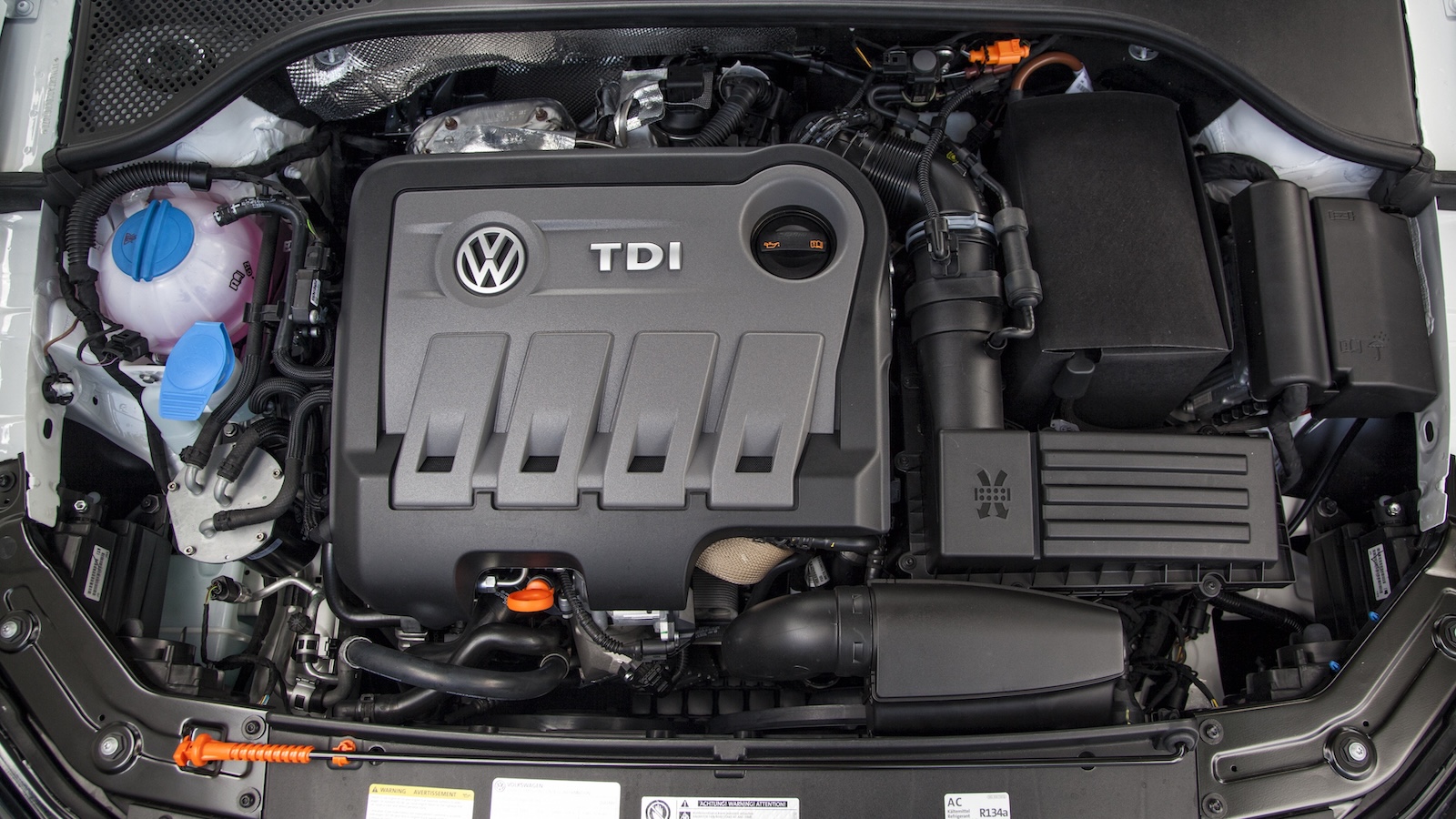
Roughly 13 years after researchers at West Virginia University uncovered evidence of excessive nitrogen oxide emissions from diesel-powered Volkswagens, and nearly a decade after the EPA announced that Volkswagen had violated the Clean Air Act, Dieselgate still isn’t over. At this point, it’s unequivocal that Volkswagen and other automakers used defeat devices to skirt the spirit of emissions laws, but that certainly doesn’t mean that litigation is over.
The courts often move like tectonic plates, and while environmental fines have been levied and executives have been jailed, civil cases around Dieselgate are still ongoing. That’s where this latest bit of news comes from, with Reuters reporting that European Justices find automakers like Volkswagen still liable for their diesel emissions tampering actions.
The European Court of Justice on Friday ruled that carmakers like Volkswagen (VOWG.DE), remain liable for using unlawful defeat devices, such as temperature-sensitive emissions software, even if the vehicles met EU standards, which doesn’t guarantee the technology’s legality.
The case at the European Union’s top court arose from two German lawsuits involving Volkswagen diesel vehicles fitted with defeat devices, either during production or through later software updates. The Court said compensation to buyers can be reduced based on vehicle use or capped at 15% of the purchase price, but it must still adequately reflect the damage caused.
So what does this mean? Well, what we’re looking at here is precedent for civil litigation. Some owners are still seeking compensation from Volkswagen due to alleged defeat devices on their vehicles, and in this case, Volkswagen drew up a defending argument that seems fairly flimsy. As Marketscreener reports:
Volkswagen has suffered another defeat in its battle against compensation claims from diesel buyers. The Court of Justice of the European Union (CJEU) has now ruled that the Wolfsburg-based company cannot invoke a so-called error of law regarding the use of defeat devices for exhaust gas purification. This is the case when someone does not know or incorrectly assesses that their behavior is prohibited and therefore illegal.
[…]
In the proceedings, VW argued that it had assumed that the defeat device was permissible and that it would have been approved by the Federal Motor Transport Authority if requested.
The ECJ has now ruled that a car manufacturer cannot be exempted from liability for an illegal defeat device simply because the vehicle type or the device itself has been approved by the competent national authority.
Considering the environmental damage caused by tampering with emissions on such a wide scale, I get why authorities are continuing to hold automakers liable. While this may seem like the longest-running automotive scandal in history, it’s a different beast from the Ford Explorer’s Firestone tire scandal or the Toyota floor mat scandal. Those were safety defects; systemic emissions cheating is something more insidious. The bottom line? Expect to keep hearing about Dieselgate for years to come.
Get Ready For A New Combustion-Powered Macan
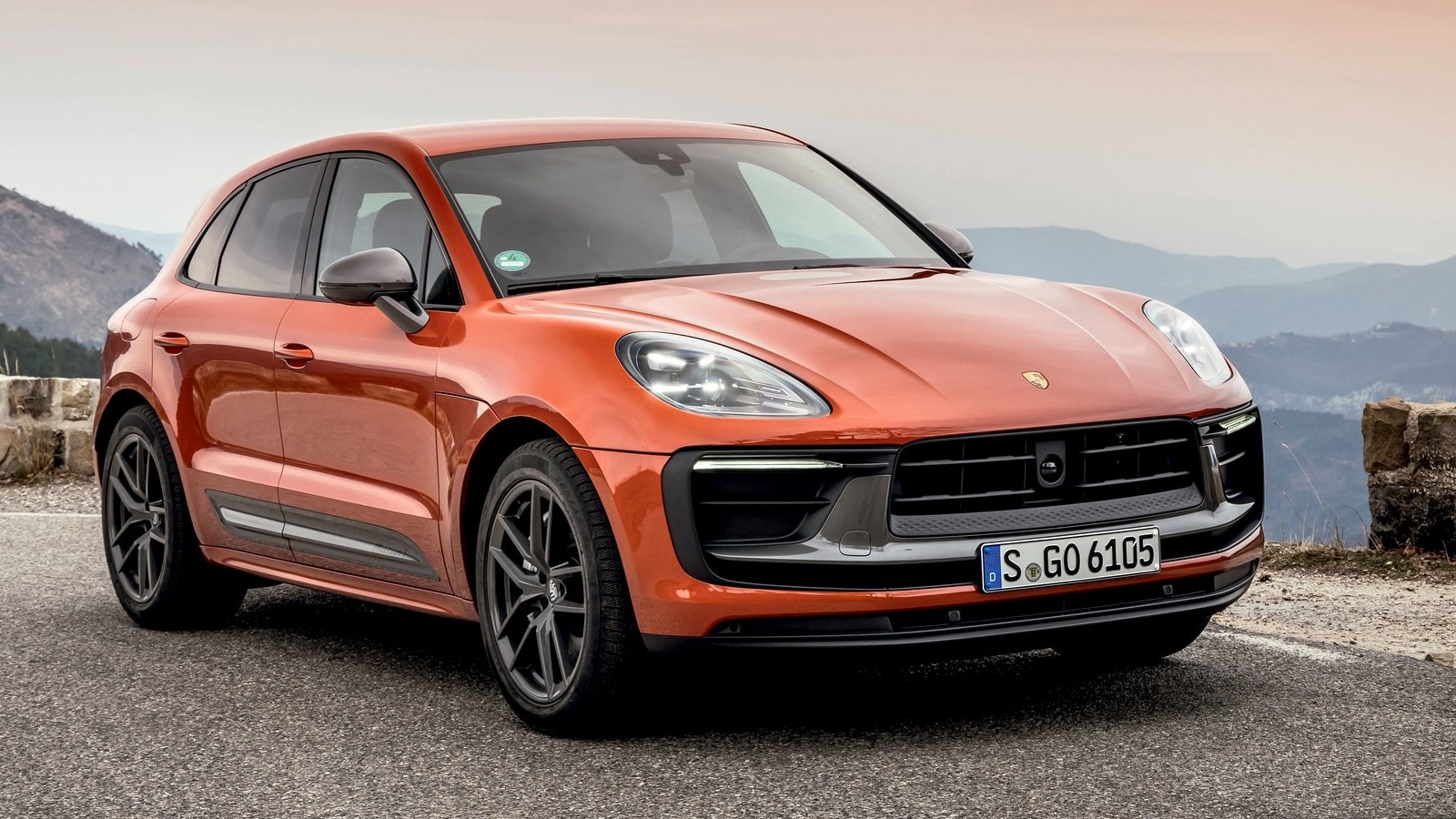
The beauty of Porsche’s branding is that it’s often looked at as a sports car company, but is really now an SUV company that’s known for its sports cars. Sure, cars like the 911, 718 Boxster, and 718 Cayman are the ones everyone wants in their garage, but haulers like the Cayenne and Macan are what keep a steady stream of revenue flowing through even the bad times. Sports cars are frivolous in the same way champagne is, but luxury SUVs? Even the upper-middle-class doesn’t stop shopping at Whole Foods if the economy takes a downturn. However, the current combustion-powered Macan has been phased out in Europe thanks to GSR2 legislation and not everyone wants to go electric, so the engineers in Stuttgart are readying another new Macan. The marque had an earnings call on Wednesday, and Automotive News was listening in on what CEO Oliver Blume was saying to relay this tidbit of information:
“We won’t be later than 2028 with the B-SUV ICE and hybrid version,” he said of the vehicle. The vehicle will be rolled out to all markets but Blume didn’t say when the U.S. launch will occur.
Given that Porsche classifies the electric Macan as a B-SUV, it sure seems like we’ll be looking at a brand new combustion-powered Macan at some point in the next three years, with an electrified twist. While there’s no word on whether the hybrid model will be a plug-in or not, a plug-in does make sense assuming a seven-year model cycle from 2028 to 2035, as several key markets have legislation prioritizing plug-ins. For example, Canada’s EV mandate allows for long-range plug-in hybrids to qualify under near-term electrification quotas, and various European countries have tax advantages for plug-in hybrids. In any case, don’t be surprised if the next gasoline-powered Macan will run on the same Premium Platform Combustion, um, platform found underneath the new Audi Q5.
Aston Martin Is Selling Its F1 Team
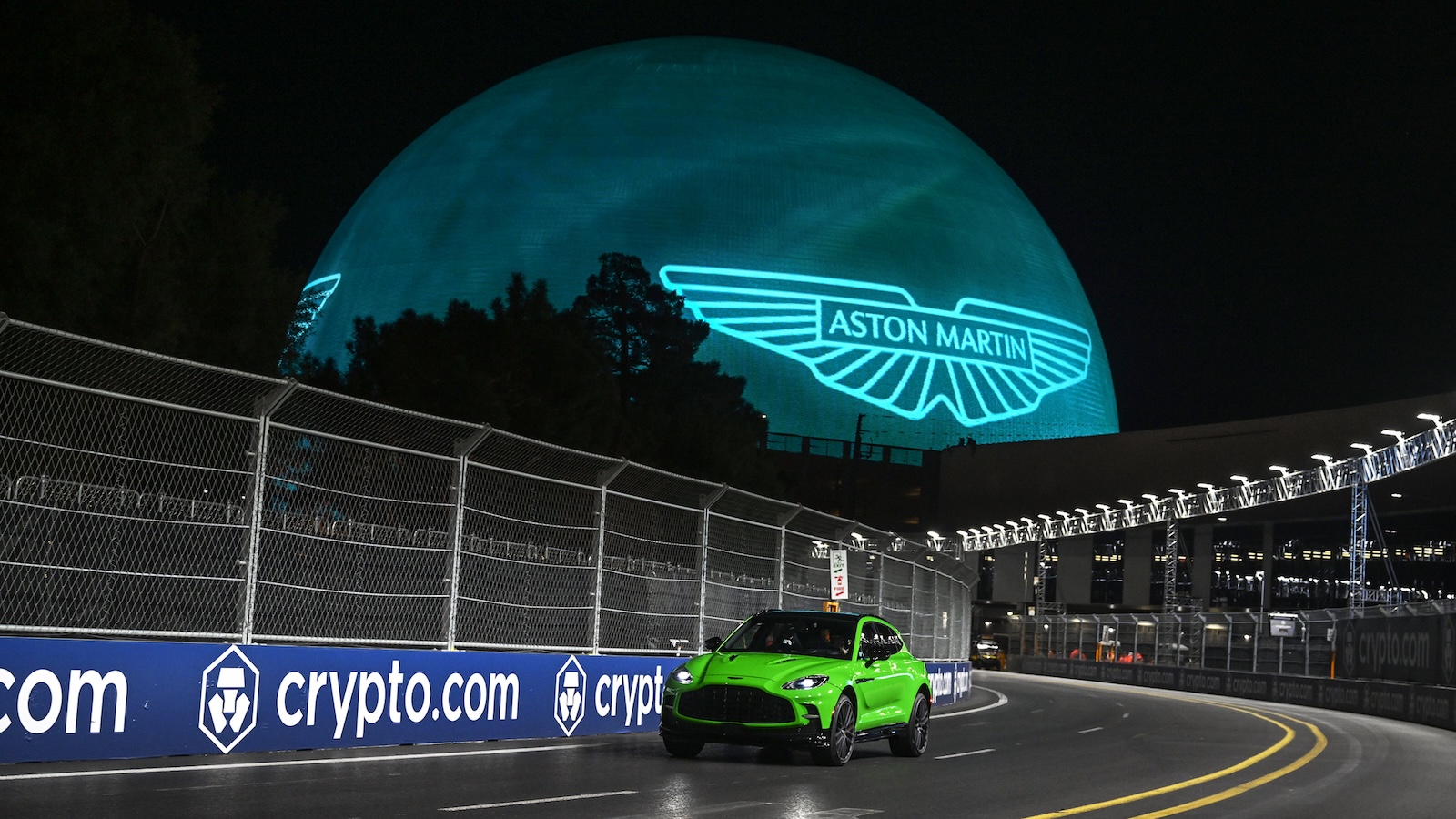
Despite what feels like the strongest product lineup in years, Aston Martin isn’t having the best time right now. Thanks in part to a combination of a decline in volume of high-margin Specials models, a slump in wholesale volumes of most core models outside of Britain, and tariff-related impacts, its operating loss for the first half of 2025 widened to £134.7 million from £106.1 million for the first half of 2024. That’s not a great position to be in as a publicly traded company, so as for ways to raise cash relatively quickly, how about selling its stake in its Formula 1 team? As Bloomberg reports:
Aston Martin Lagonda Global Holdings Plc, the listed carmaker, has agreed to sell its minority stake in the racing team for £110 million, it said Wednesday. A binding letter of intent has been signed with a buyer at a £2.4 billion valuation, Chief Executive Officer Adrian Hallmark said in an interview. He declined to name the buyer, saying the deal had yet to complete.
So what’s going to change if this sale happens? Other than a needed cash injection for Aston Martin Lagonda, likely not much. Even if Aston Martin, the carmaker, cashes out, majority control of the F1 team would still be held by Aston Martin CEO Lawrence Stroll through his firm Yew Tree Investments. What’s more, Planet F1 reports that “While the auto maker is set to step away as a minority owner, it will maintain a commercial relationship through a long-term branding agreement.” In short, if the reported stake sale goes through, expect to see Lance Stroll on the grid in an Aston Martin come 2026.
You Can Now Smell Like An F-150

Gendered toiletries will never cease to be amusing. Walk into your local pharmacy and take a gander at the scents of products aimed at women. They’ll all smell like things humans actually want to smell, like lavender and vanilla and hibiscus. Meanwhile, products aimed at men have ridiculous scents like Batman and brick and, um, Ford F-150. Yeah, so Ford has collaborated again with man soap brand Dr. Squatch on some new soaps, and it really feels like branded merchandise is plumbing new depths here.
Unsurprisingly the new soaps aren’t named after, say, the Escape and Mustang Mach-E. Instead, they’re called the Bronco Bricc and the F-150 Tough Scrub, one of which is brown and the other of which is blue. Alright, there’s a little more to it than just the color. The Bronco soap seems like a traditional scent package of cedar and pine, but the F-150 Tough Scrub is where things get interesting. It’s been given scents of leather and driftwood, which theoretically means it could make you smell like a King Ranch even if Dr. Squatch doesn’t explicitly state any similarities to the scent of a high-spec half-ton. Unsurprisingly, there’s also a contest running with this collaboration. Buy the soap, get an entry to potentially win an F-150. I suppose it beats arriving to a Bumble date wearing Hummer aftershave or Nissan 350Z cologne.
What I’m Listening To While Writing The Morning Dump
Since Matt returns to Morning Dump duties next week, I figure this is the last chance I have for the foreseeable future to share something a bit out-there from my mix. As far as recent artists with blue links on their Wikipedia page’s family section go, 2Hollis is one of the most artistically interesting in the game right now. The son of the drummer from Tortoise and Owsla cofounder Kathryn Frazier, he’s delivering a unique blend of electroclash and experimental hip-hop starring his own tight production. This one’s called “you once said my name for the first time“.
The Big Question:
What’s your take on the legacy of Dieselgate?
Top graphic image: Volkswagen
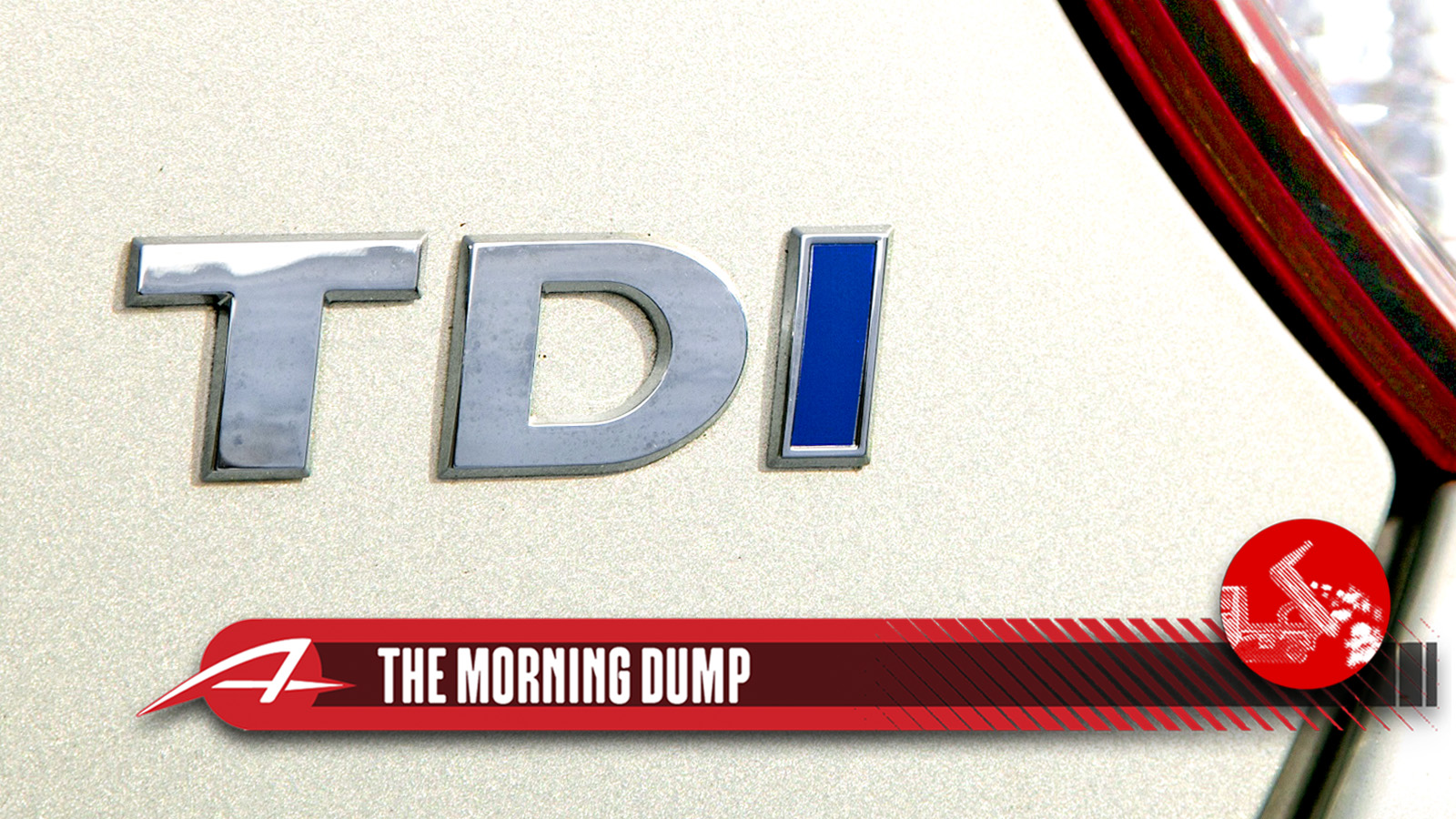



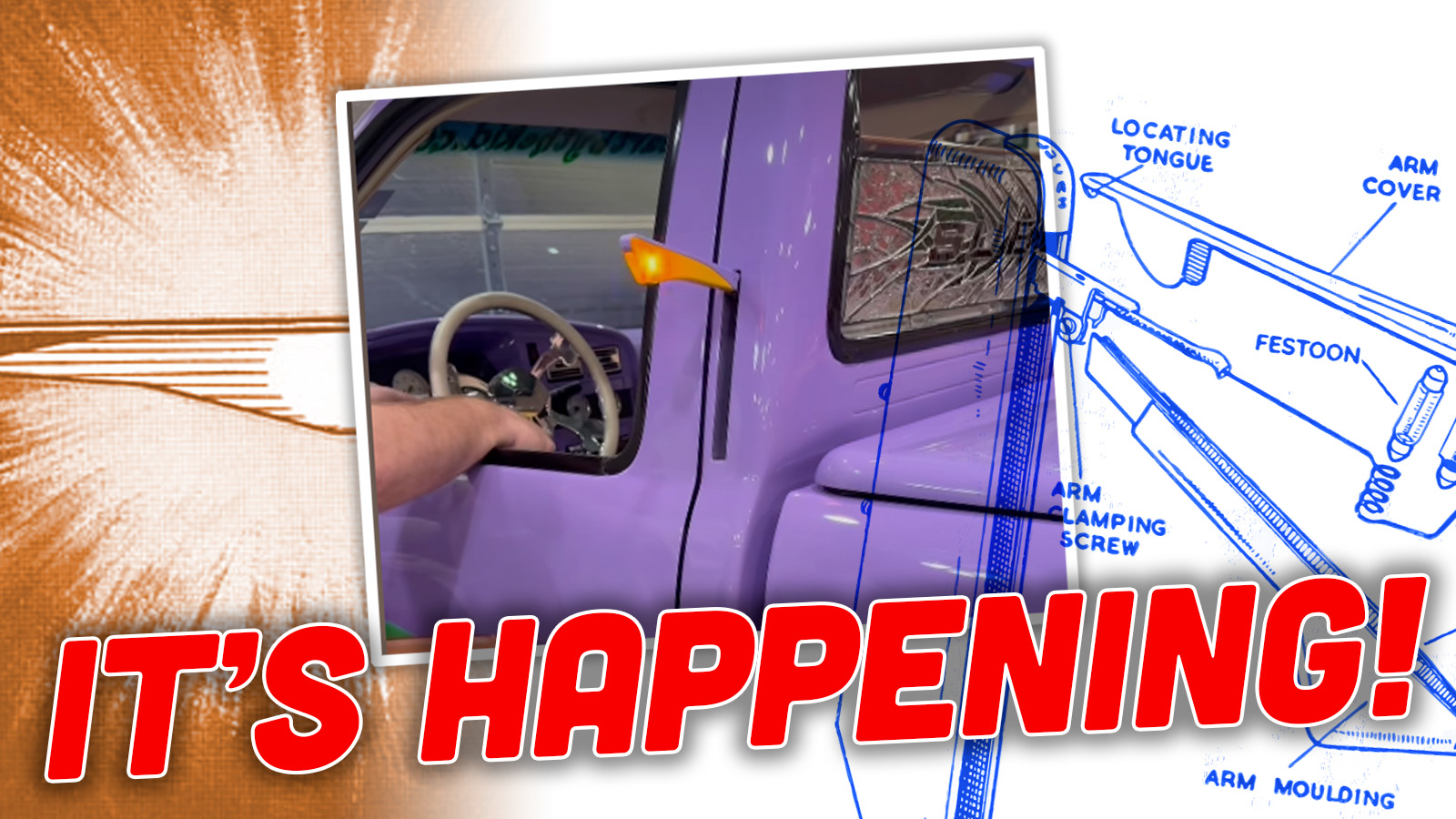


Come on, Dr. Squatch, give us a soap based on the scent of a C-Max. Or Aged Ford Focus Melted Crayon Interior
Truly a masterpiece Thomas, this has been the best TMD in months!
Can’t wait for your next round.
The real big question is did government regulations require performance that was unattainable that car manufacturers needed to cheat. All these regulations are based on as yet unavailable technology.
At the same time as VW were cheating other manufacturers were making legal diesels. The regulations didn’t make compliance impossible.
This is all on VW.
The regulations rarely dictate a technology, just a result.
The coming ICE bans in Europe are a great example of why regulating a technology rather than a result is stupid: the goal of net zero carbon can be met with ICE of today’s technology burning renewable fuels.
Really? You think there are enough renewable fuels out there to burn to achieve net zero with ICE AND meet demand for transport?
I’d love to see the math on that one.
A better question is why anyone believes any of this will make a difference globally.
Purely a faith based belief.
You have a better idea?
A focus on real practicality and durability, also known as the ecological approach.
Govt mandated crap built for worst case scenarios is the worst possible approach.
The opportunity cost of so. much waste long-term may cost us in ways we won’t know for years.
Even if there was actual science in meeting made up goals, other countries cancel all efforts.
Maybe we could be better prepared for the coming diseases?
Govts may not care about overpopulation, but nature will result in a correction.
It may be unpleasant.
I was hoping for a more coherent idea. “Ecological approach” is what, horses?
Horses are willful and curious.
I don’t need transportation with a personality.
I call for an end to Speculative Engineering.
Best practice engineering to keep vehicles repairable and operational.
Vehicles that don’t have to be replaced are the most ecologically sound.
We could go farther and specify subframes on some models that would fit multiple manufacturers, encouraging actual competition.
That’s no panacea. Even repairable cars end up in junkyards for reasons spanning catastrophic crash damage to just being ugly or unfashionable.
No, not at all. But I do think that renewable fuels could be a viable solution for some use cases that preclude EVs, like long distance driving, low mileage low income users who can’t afford an EV and those who live where infrastructures can’t support an EV.
Throwing out an entire technology is stupid. It’s not a problem in the US, obviously, but the rest of the world has decided that EVs are the only solution.
It’s like trying to fix alcoholism by banning shot glasses.
The real easy fix for net zero is, of course, a much, much smaller population of humans.
“But I do think that renewable fuels could be a viable solution for some use cases that preclude EVs, like long distance driving, low mileage low income users who can’t afford an EV and those who live where infrastructures can’t support an EV.”
Here’s the thing. Aviation needs those fuels more. With very few exceptions it’s jet fuel or nothing. And its not just commercial aviation but military aviation as well. THAT thirst makes light transport look like a teetotaler. So any plant that could produce renewable gasoline is better off making renewable jet fuel.
Next in line would be heavy transport. The jury’s still out on electricity and hydrogen for long haul trucking. Natural gas is probably the best solution there assuming its not banned as a potent GHG. SO I think light transport will have competition for renewable fuels from heavy transport as well.
To make matters worse if renewable fuel is made from electricity it needs to be made only from surplus renewable electricity otherwise you’re just robbing Peter to pay Paul.
All that means it will be a very long time before any meaningful amount of affordable renewable synthetic fuel trickles down to light transport.
“It’s like trying to fix alcoholism by banning shot glasses.”
Funny you should mention that since (IMO) ethanol is one of the better renewable fuel options for light transport. It’s lower energy content can be partly compensated for with higher efficiency hybrid systems. Unfortunately for light transport that ethanol is also a feedstock for synthetic jet fuel:
https://www.energy.gov/eere/bioenergy/articles/first-ethanol-alcohol-jet-sustainable-aviation-fuel-production-facility
Hardly a “real big question”. The technology absolutely existed and was mature enough for automotive reliability and cost.
You are focused on government regulations as the bad guy and forgetting that GREED and the capitalistic driver of said ‘sin’ is why VW and several other automakers chose to cheat.
Adding SCR to the emissions system added cost and potentially reduced margins on sales because the automakers are conscientious of consumers avoidance to both upfront cost and maintenance cost (refilling DEF).
This is one of the very important reasons why regulations exist, because otherwise companies and corporations would go with whatever results in the largest margins. So on and so on…
Many buyers actively avoid newer designs now, having lost faith in the government and manufacturers.
Tier Zero and Tier One emission vehicles are more desirable on the market.
I know of true believers that have had long term Prious ownership, but are unwilling to replace one with a hybrid.
They bought a normal Honda.
That sounds more like the arguments the Big 3 make when the Japanese brands keep eating their lunch. Plenty of other brands figured out compliant diesel, but VW decided it was cheaper to cheat than actually figure it out themselves
My understanding was that EPA test procedure in the past didn’t involve the real world driving. Just anchor the vehicle to the fixed platform with rolling drums then use the throttle pedal to accelerate and decelerate. The biggest problem is the human operators might not be THAT precise with timing when using the throttle pedal.
In the 1990s, Cadillac was caught for “falsifying” the documents when EPA didn’t mandate that every accessory, namely air conditioning at full blast, must be switched on when testing. So, Cadillac more or less got off with a light slap on the hand.
In Germany, the agency has a portable test equipment that is attached to the rear of the vehicle and pipe attaching to the exhaust pipes. They are more realistic and show bit more accurate reading.
> In the proceedings, VW argued that it had assumed that the defeat device was permissible and that it would have been approved by the Federal Motor Transport Authority if requested.
This is one of those things where they’re saying the quiet part out loud.
No but it was okay if they paid billions on fines
Gawd I love all this weird male insecurity marketing. Went looking at the store for Dear Wife’s favorite protein powder*, which happens to be RARR TOUGH MILITARY MAN branded. Was baffled to find nothing but smaller pastel-colored packaging until I realized this was the Girly Girl section, and the Manly Man section was carefully segregated 10′ away to avoid cooties transmission.
The broader societal impacts of this is very Politics so I will stop here.
*MRE Lite, seems to be the only one with proteins her body actually uses.
They (big scent) definitely don’t want customers to notice the price difference between them.
My FIL was a heavy equipment mechanic. When I would come in from a wrenching session smelling of grease and sweat, my wife said that smell made her happy. If they sell “air-cooled VW crankcase” cologne, I’m a potential customer.
Goop or GOJO original (the Forbidden Mayonnaise) is a special scent.
Try “rancid sperm whale”. It’s the secret magic ingredient in old gear oil and transmission fluids.
https://www.motorbiscuit.com/you-wont-believe-how-whale-oil-was-once-used-in-cars/
okay i’m am apparently out of the loop how is the SENSORS a defeat device in of itself? isn’t it just collecting data?? AFAIK The CPU programing of the cars were what was defeating the emissions tests. It was trying to “guess” when it was being tested mainly by engine temperature and by knowing the front wheels were spinning and the rear wheels were not. It’s not like VW bolted on a specific ‘cheat device”
It just seems like the classic “slippery slope” fallacy. at what point do you just call the entire car a defeat device and count every component of the car as thousands of individual defeat devices and start charging thousands of dollars in fines per component??
You must be new to the perfume world
https://comme-des-garcons-parfum.com/products/series-6-synthetic-garage
Or this
https://imaginaryauthors.com/collections/complex/products/how-to-say-bicycle-in-french
Can’t find Eau de Stilton , but it’s real.
I dated a woman who was a singing waitress at a lobster restaurant on the Bowery and you could smell that place from about a block and a half so I have no idea what this is supposed to smell like
https://demeterfragrance.com/collections/lobster?
Also
https://demeterfragrance.com/products/funeral-home-perfume-oil-roll-on
They also have playdough and thunderstorm scents.
Back on topic, does F-150 smell like diesel, wet dog, Slim-Jims left in the sun soaking into the dashboard, and B.O. ?
I had recently started working as a service advisor for a VW/Audi/Porsche dealer when my service manager called most of the service department in to let us know about VW’s cheating.
I was able to quickly fire an off an email to TTAC with some formal documentation so they could break the news. They only had a few minutes to get something together because while I was the first, I wasn’t the last source that day.
TTAC got some much needed attention as they were then credited throughout the initial coverage!
The following years were wild because I don’t think I have met a more smug group of people than the better part of VW diesel buyers.
Some dumped their cars immediately because of “hurt feelings” because they, apparently, had deluded themselves into thinking that driving a diesel was, somehow, saving the environment.
People would come in with their VW gift cards to get them activated and shout at us like we had something to do with the scandal.
Owners were given two $500 Visa gift cards and the one was only good at the dealer and would expire in like 12 months, or something, but then they would forget and try to use the card after it expired and start shouting at us about it.
Sooo much work went into modifying the fleet and VW bought back a lot of their vehicles, so much so that resellers would get involved and buy them off owners to then sell back to VW for a tidy profit.
When the Audi’s and Porsche’s came up for repairs, most needed new tires, brakes, fluids, batteries, wipers, etc. to be ready for resale and we were in a prime spot near a large auto auction, so my sales numbers were astronomical at over $300k in parts and labor for several months as we worked on all of the vehicles and got them ready for resale.
Wild times!
I knew a guy who at the time had a diesel A3. He had a sticker on the back that the dealer had put on that was Audi clean diesel.
He put quotation marks so it read Audi “clean” diesel.
DieselGate: I never understood, that it took so long to be discovered. In *2000*, BMW Motorrad was caught doing the same (detecting test cycle vs normal driving):
https://www.motorradonline.de/motorraeder/technik-schadstoffvergleich-archivversion-rollenspiele/
I was expecting another diesel gate because they never really went after bosch the main supplier of most of the system’s and controls nor Siemens almost all the rest. I primlary think of it EPA vs EEC/euro standards mishap with chaos of non engineering non elected people steering the ship into choas. The older euro specs seem to be able to be met. The nox the EPA is obsessed with is very hard to deal with and at this point seems almost impossible to deal with with out urea injection. Where the CO2 the eec / euro specs targeted can be handled easier. I can remember Jeff Lutz yelling how they couldn’t figure out how vw had a tdi without urea injection they were benchmarking them and didn’t figure it out. Mountains out of molehills and trying to find the most obvious people with the deepest pockets to blame.
During the early to mid 90s, when I was in high school, my parents had a ‘92 miata. Whenever you drove that car you’d end up smelling faintly of exhaust.
Every once in a while I smell the same exhaust with notes of unburnt fuel, oil, and sunshine. It brings back memories of blasting irresponsibly as a high school kid will through the hills with weezer’s blue album cranked and the top down.
I’d wear that.
P.s. it turns out the auto correct on my phone for weezer is “wee erotic”. Seem reasonable.
Autocorrect is getting noticeably worse
In late 2014 thru mid 2016 I had 2011 Golf TDI Tech pkg (Sunroof & HID headlights). I had just moved to Deerfield Beach FL, was driving insane daily distances for work and my 07 GTI was approaching 190k miles. I found the TDI online at the Ford Dealership in Lake Wales. Called, spoke to the online sales guy, got details, a Car fax and he did a full a video walk-through to send me. Had a small dent under the rear passenger door so told him if they knocked off $2K I’d take it and after 10min on hold they agreed. Drove up with my wife to pick it up, took it for quick drive and signed the paperwork. Car was traded in for an F-250 so they were pretty hot to get rid of it. A week later the GTI went to CarMax for $6200 and I got the dent fixed for $1200. really enjoyed the car while I had it. I swapped as much as I could from the GTI, Eibach pro kit springs, H&R 28mm RSB, wheels and tires, RNS-510 sat/nav unit with full bluetooth. Consistently averaged 36mpg the entire time I had it. One trip I got 538miles out of a tank. Only maintenance was oil changes, a DSG service which I did myself and tires. In 2016 I got the buyback offer and took it immediately. VW gave me $3500 more than I paid for it which basically meant that for the time I had it, I drove it for almost free. Replaced it with a 2012 GTI Autobahn which has been replaced with a 2016 GTI Autobahn which will be my last newer VW cause they currently make nothing that apealls to me.
This feels right. When you know you are circumventing the law by engineering to specifically trick the tester, you didn’t misunderstand the law. You intentionally broke the law and hoped not to get caught.
This isn’t just designing to match test parameters (which is already frustrating, since the tests aren’t always a great reflection of real-world situations), but this is a system that detects the test and turns on emissions equipment. There is no situation in which that seems like any sort of honest mistake.
detecting the test and turning on the emissions equipment is fine. it was the detecting the absence of the test cycle and turning emissions equipment off that broke the law.
That’s on me for not indicating that the emissions equipment was turned off when it wasn’t turned on.